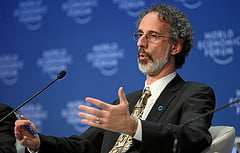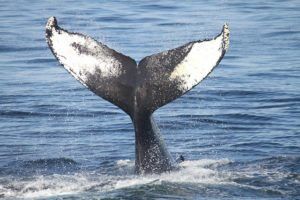

News
The Heartland–Gleick saga continues
Peter Gleick, the climate scientist who adopted a fake name to access confidential documents belonging to the Heartland Institute, is on leave from the Pacific Institute, pending an investigation into his actions.
Gleick has been president of the Institute since he co-founded it in 1987, but over the weekend decided to have a “temporary short-term leave of absence” whilst his acquisition of the controversial documents was looked into.
Peter Gleick, the climate scientist who adopted a fake name to access confidential documents belonging to the Heartland Institute, is on leave from the Pacific Institute, pending an investigation into his actions.
Gleick has been president of the Institute since he co-founded it in 1987, but over the weekend decided to have a “temporary short-term leave of absence” whilst his acquisition of the controversial documents was looked into.
The Berkeley-based hydroclimatologist initially admitted to leaking the Heartland papers last week, in a blog for the Huffington Post.
And apart from a tweet that read, “To all those sending kind words and thoughts, I deeply appreciate them”, his announcement of leave is the only statement he’s made on the issue since.
On Friday last week, Heartland took the liberty of publishing the email exchange between Gleick, who was posing as a board member, and a Heartland employee. The correspondence was made available on a dedicated site, Fakegate.org.
In the interchange, Gleick requested that an email address be added to the Institute’s board mailing list, be updated on the current board schedule, and receive a copy of recent minutes from board meetings. All requests were duly obliged by the unsuspecting Heartland employee.
James Garvey, the author of The Ethics of Climate Change who spoke to B> last week, wrote an article for the Guardian yesterday that questioned whether Gleick’s lie was justified.
“Gleick’s intentions matter when we try to work out whether he was wrong to lie”, wrote Garvey.
“It’s worth noticing that he wasn’t lying for personal gain. What resonates for me, though, are the consequences of his action.
“If Gleick frustrates the efforts of Heartland, isn’t his lie justified by the good that it does?”
The evidence for anthropogenic global warming is overwhelming, but because of the influence of sceptical organisations like the Heartland Institute, government policy and efforts to prevent continuing climate change are often questioned.
“Climate scientists should stand up against people who misrepresent climate science just as evolutionists and medical doctors fight equally absurd claims in their domains”, concludes Garvey in his Guardian article.
“Did Gleick go too far? I’m not sure he did, but I do wonder whether some climate scientists go anywhere near far enough.”
Peter Gleick’s actions, whilst explicitly unethical, have exposed the seedy nature of the climate change denial world. Clearly, the Heartland Institute will be aggrieved that confidential, and more importantly, damning information is now in the public eye.
More rational individuals in society should continue to strive to tackle climate change. One way to do this is by choosing more wisely where your investments are held. After all, wouldn’t it be better that your money was working for good rather than supporting unsustainable practices?
Get in touch with your IFA to find out more about investing responsibly, or fill in our form and we’ll guide you through the process.
Picture source: World Economic Forum
Related links:
Gleick’s Heartland exposé highlights divisions over climate change


 Environment12 months ago
Environment12 months agoAre Polymer Banknotes: an Eco-Friendly Trend or a Groundswell?

 Features11 months ago
Features11 months agoEco-Friendly Cryptocurrencies: Sustainable Investment Choices

 Features12 months ago
Features12 months agoEco-Friendly Crypto Traders Must Find the Right Exchange

 Energy11 months ago
Energy11 months agoThe Growing Role of Solar Panels in Ireland’s Energy Future





























